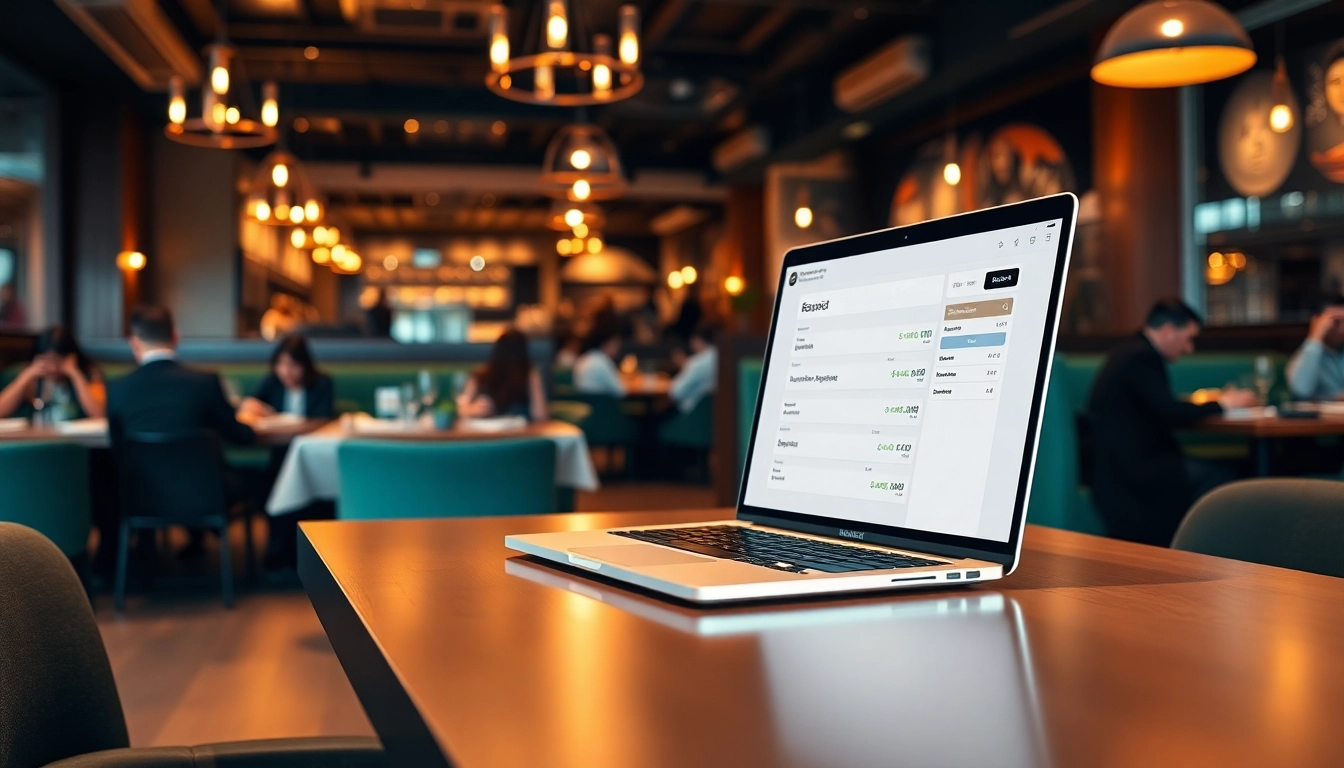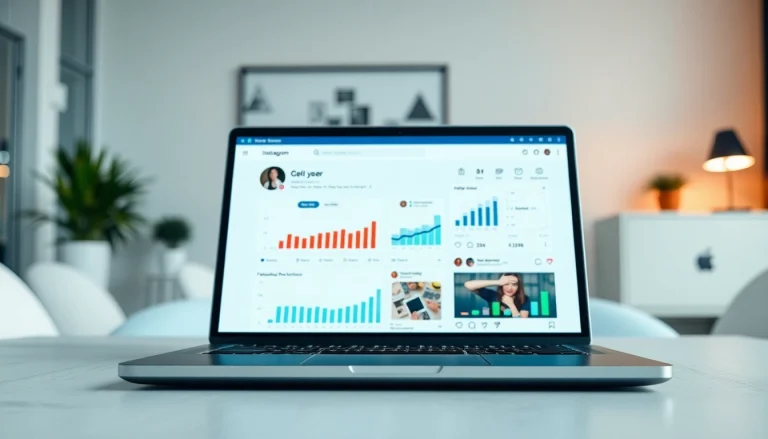Understanding Reservation Services
What are Reservation Services?
Reservation services are structured systems designed to manage and organize the process of booking resources, whether it’s tables at restaurants, hotel rooms, airline tickets, or event spaces. These services provide a platform for consumers to secure spots in advance and enable businesses to streamline their operations, ensuring efficient use of their resources. Through both physical and digital channels, reservation services serve as a critical bridge between consumers and businesses, enhancing overall customer experiences while optimizing operational efficiency.
The Importance of Reservation Services for Businesses
For businesses, particularly in the hospitality and service sectors, reservation services play an essential role in revenue management and customer engagement. They allow businesses to:
- Maximize occupancy rates by managing inventory effectively.
- Reduce operational chaos by streamlining booking processes.
- Enhance customer satisfaction through guarantee of reservations, reducing wait times.
- Collect valuable data on customer preferences and behaviors, enabling personalized services.
- Mitigate losses from overbooking or mismanagement of resources.
In an increasingly competitive marketplace, implementing efficient reservation services can differentiate a business while enhancing profitability and customer loyalty.
Types of Reservation Services Available
There are various types of reservation services tailored to different industries, each designed to meet specific user needs:
- Restaurant Reservations: Platforms like OpenTable and Resy enable diners to book tables online, read reviews, and sometimes earn rewards.
- Hotel Reservations: Services such as Booking.com and Expedia provide a comprehensive view of available rooms, pricing, and reviews, facilitating quick bookings for travelers.
- Event Ticketing: Systems like Eventbrite allow users to reserve their spots at events, giving organizers a clear handle on attendance numbers.
- Transport Reservations: From car rentals to airline tickets, various platforms allow booking of transportation services that are essential for travel planning.
How Reservation Services Benefit Customers
Streamlined Booking Processes
Today’s consumers value convenience, and reservation services significantly streamline the booking process. They eliminate the need for phone calls or in-person inquiries, allowing customers to make reservations through user-friendly interfaces. By leveraging mobile apps and responsive websites, customers can secure bookings anytime, thereby improving accessibility.
Enhancing Customer Experience through Reservations
Reservation systems not only facilitate bookings but also enhance customer experiences by providing visibility into available options and user-generated reviews. Features such as online chat support, reminders of upcoming bookings, and easy cancellation options contribute to a seamless customer journey that encourages repeat business and instills confidence in the brand.
Building Customer Loyalty through Efficient Services
When customers have positive experiences with reservation systems, they are more likely to return. Efficient services that prioritize customer needs—such as prompt confirmations, personalized communications, and loyalty rewards—foster trust and loyalty. Businesses that actively engage customers post-reservation through feedback requests can further build relationships and ensure continuous improvement in service delivery.
Choosing the Right Reservation System
Key Features to Look for in Reservation Systems
When selecting a reservation system, it’s important to consider features that align with business needs. Critical features include:
- User-Friendly Interface: Both consumers and staff should easily navigate the system without extensive training.
- Integration Capabilities: The ability to integrate with existing software (like POS or CRM systems) can streamline operations.
- Mobile Accessibility: A mobile-friendly interface allows staff and customers to access systems on the go.
- Reporting and Analytics: Insights into booking patterns can help businesses make informed decisions regarding marketing and inventory.
- Customer Relationship Management: Features that allow for personalized communications and loyalty tracking can enhance customer retention.
Comparing Top Reservation Services in the Market
Among the most popular reservation systems, several stand out due to their robust features and user satisfaction:
- OpenTable: Ideal for restaurants, offering an extensive network and strong customer management tools.
- Tock: Known for its unique customer engagement strategies and excellent reporting features that cater to restaurants and wineries.
- Resy: Focused on enhancing dining experiences through innovative reservation technology.
- Bookeo: Offers versatile solutions for various business types, from tours to appointments, with a focus on growth.
- ThinkReservations: A comprehensive management solution for hotels that facilitates direct bookings while enhancing customer engagement.
Cost Considerations for Implementing Reservation Services
The cost of implementing a reservation system can vary significantly depending on the level of complexity and feature set. Businesses should consider:
- Subscription Fees: Many systems operate on a subscription basis; understanding pricing tiers is crucial.
- Transaction Fees: Some systems charge fees for every booking; knowing these can help manage margins.
- Setup Costs: Initial setup fees may apply, particularly for more sophisticated systems that require customization.
- Training Costs: Investing in staff training for effective utilization of the system can yield better returns.
Best Practices for Managing Reservation Services
Training Staff on Reservation Software
Effective use of a reservation system starts with comprehensive training. Staff should be well-versed in all functionalities to assist customers efficiently. Regular training sessions that cover updates and best practices ensure that the staff remains proficient in using the software to its fullest potential.
Strategies for Handling Overbookings
Overbooking is a common challenge in the hospitality industry. To mitigate its risks, businesses can adopt strategies such as:
- Capping Reservations: Set specific limits to avoid overbooking based on historical data and peak operating hours.
- Sequential Confirmations: Send reminders to customers about their bookings, helping to reduce no-shows.
- Customer Incentives: Offer benefits or discounts for opting for alternate slots instead of cancellations.
Utilizing Data Analytics for Improving Services
Data analytics can significantly impact the effectiveness of reservation services. Businesses should leverage data on booking patterns, customer behaviors, and seasonal trends to make informed decisions. This data can help optimize staffing, refine marketing strategies, and enhance the overall customer experience.
Future Trends in Reservation Services
The Impact of Technology on Reservation Services
As technology continues to evolve, reservation services are becoming increasingly sophisticated. Trends such as AI-powered chatbots, machine learning algorithms for predictive analytics, and integration with augmented reality are shaping the future landscape. These technologies promise to create more personalized and efficient booking experiences.
Emerging Trends in Customer Preferences
Today’s consumers are gravitating towards personalized services and immediate gratification. Reservation services that offer instant booking confirmations, last-minute availability, and tailored offerings based on previous behavior will remain competitive. Additionally, mobile-centric solutions are quickly becoming the norm as consumers prefer managing bookings through their smartphones.
The Role of Social Media and Online Reviews
Social media has transformed how businesses interact with customers. Positive reviews and engaging content directly impact a business’s reputation and reservation choices. Managing online presence effectively and encouraging customer feedback can not only enhance brand loyalty but also directly influence potential customers during their decision-making process.







